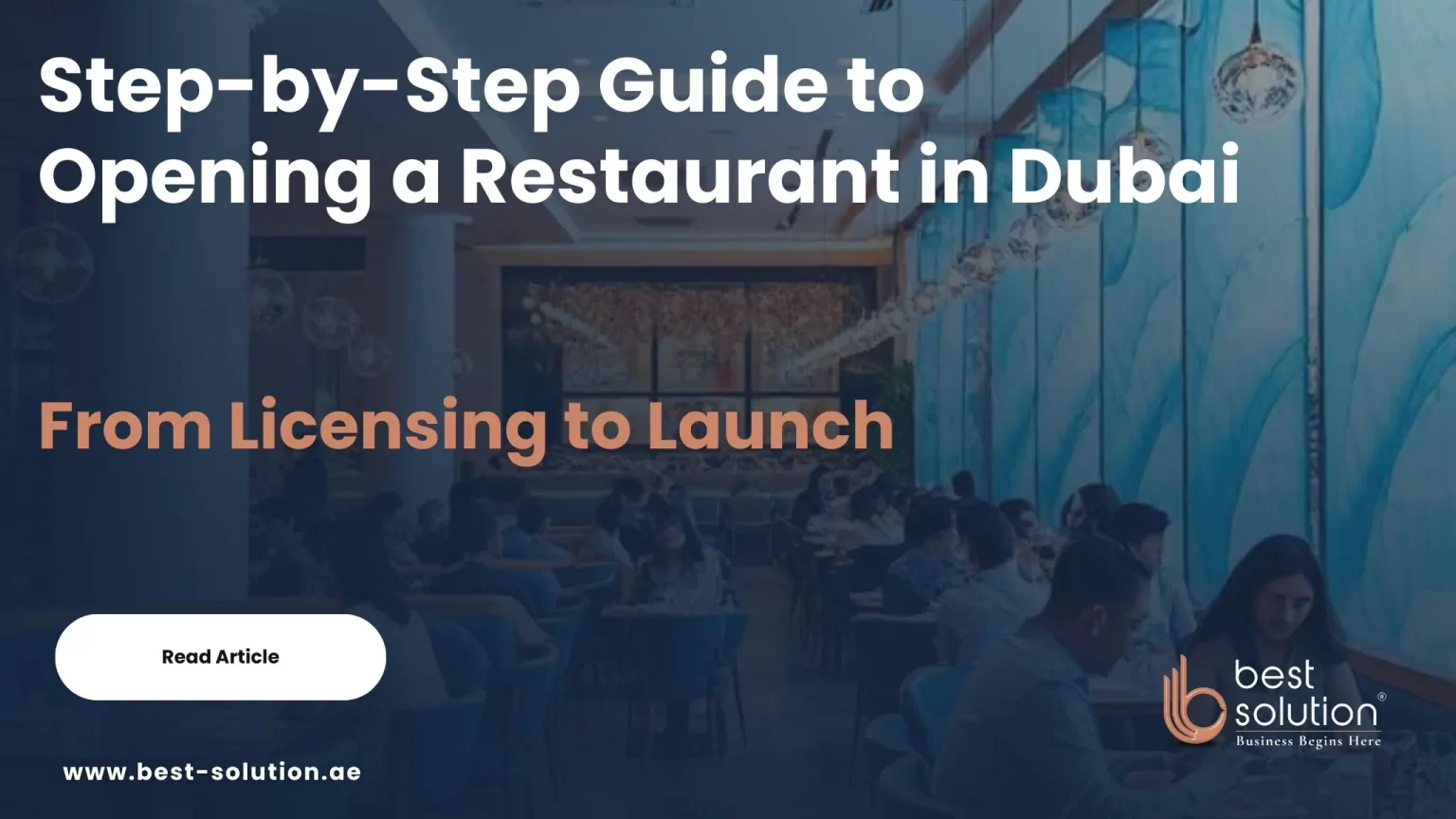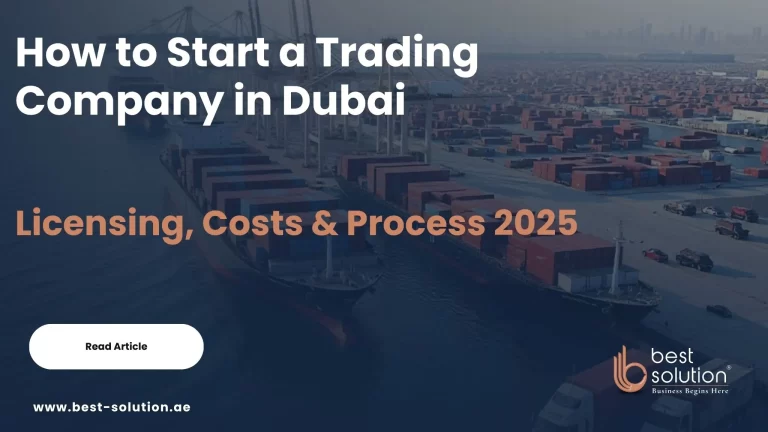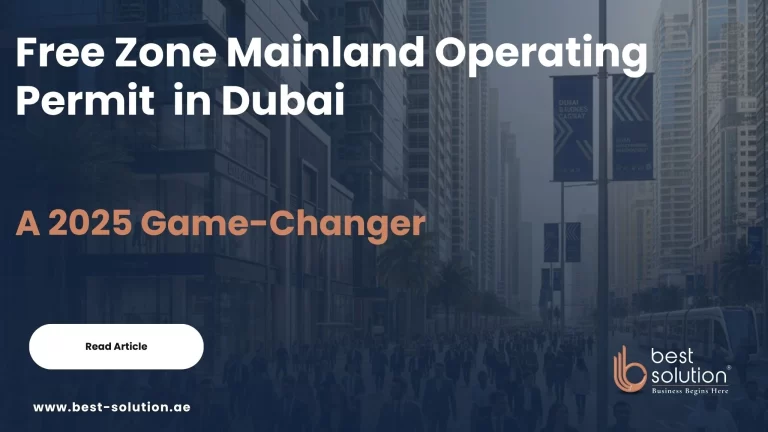Thinking of opening a restaurant in Dubai?. You’re stepping into one of the world’s fastest-growing and most profitable food and beverage markets. In 2024, the Dubai Department of Economy & Tourism issued almost 1,200 new restaurant licences—the highest number reported in recent years—underscoring a significant upward trend in dining establishment openings.Dubai is home to over 200 nationalities. This diverse resident base has a sophisticated palate and high disposable income, creating demand for everything from authentic ethnic food to innovative fusion concepts. But turning that delicious dream into a profitable reality requires navigating a specific set of legal, financial, and operational steps.
In this guide, we walk you through every essential step of how to start a restaurant in Dubai—from selecting the right business structure and obtaining the required licenses, to managing your budget, hiring the right team, and building a standout brand in a highly competitive market. This guide is packed with actionable insights to help you confidently navigate the Dubai F&B scene and bring your restaurant concept to life. Let’s build your restaurant’s foundation together.
Your Step-by-Step Guide to Opening a Restaurant in Dubai
Step 1: Finalize Your Concept and Business Plan
This is your blueprint. Before you spend a single dirham, you must define:- Your Concept: What kind of food will you serve? (e.g., Italian, Indian, Vegan, a Café).
- Target Audience: Are you aiming for families, young professionals, or luxury diners?
- Business Plan: This document is crucial. It should include your vision, market analysis, marketing strategy, staffing plan, and detailed financial projections (startup costs, operational expenses, and revenue forecasts).
Step 2: Choose Your Legal Structure and Jurisdiction
For most restaurants, a Dubai Mainland Limited Liability Company (LLC) is the ideal choice. This structure allows you to trade directly with the local market anywhere in Dubai, which is essential for a restaurant. It also provides 100% foreign ownership, a major advantage for international investors.
Step 3: Reserve Your Trade Name
Your restaurant’s name is your identity. It must be unique and comply with the naming regulations set by the Dubai Economy and Tourism (DET). The name cannot be offensive, blasphemous, or use the names of any governing authorities. We can help you check for availability and register your chosen name instantly. Learn more about our Trade name registration in Dubai service.
Step 4: Obtain Initial Approval
The Initial Approval is a no-objection certificate from the DET that confirms they approve of your proposed business activity and trade name. This is a foundational step that allows you to proceed with leasing a property and drafting legal documents.
Step 5: Draft Your MOA and Secure a Location (Ejari)
- Memorandum of Association (MOA): This legal document outlines the ownership structure and responsibilities of the shareholders. It must be drafted and notarized.
- Lease a Premise: You must find a suitable physical location for your restaurant and sign a tenancy contract. This contract must be registered with Ejari, the government’s online portal for lease registration. The Ejari certificate is mandatory for your trade license application.
Step 6: Get Your Restaurant Trade License
This is the primary business license issued by the DET. Once you have your Initial Approval, signed MOA, and Ejari, you can submit the final application. This license officially permits you to operate your business in Dubai.Step 7: Secure the Crucial Food License & Kitchen Approval
This is a non-negotiable step managed by the Food Safety Department of the Dubai Municipality. To get your food license, you must:
- Submit Your Kitchen Layout Plan: The blueprint of your kitchen must meet specific requirements for space, ventilation, drainage, and placement of equipment.
- Comply with the Dubai Food Code: This comprehensive code covers everything from food storage temperatures to staff hygiene. For more details, you can refer to the official Dubai Municipality Food Code.
- Pass Inspection: A Dubai Municipality inspector will visit your premises to ensure full compliance before issuing the final permit.
Step 8: Apply for Additional Permits
Depending on your concept, you may need other permits, such as:- Liquor License: If you plan to serve alcohol.
- Civil Defense Certificate: To certify your fire safety systems are compliant.
- Signage Permit: Approval from the DET for your external signboard.
Step 9: Process Visas and Hire Staff
With your trade license in hand, you can apply for your investor visa and begin sponsoring visas for your employees. This includes chefs, waiters, and managers. All staff handling food must also undergo mandatory Food Safety training and obtain Occupational Health Cards. Our post-license support includes handling all your visa processing needs.
Step 10: Open a Corporate Bank Account
The final step is to open a corporate bank account in the UAE. This is essential for managing your finances, processing payments, and maintaining clear financial records. Our robust business network includes strong relationships with leading banks, ensuring a smooth and quick account opening process.
A Transparent Breakdown: The Cost of Opening a Restaurant in Dubai
How much does it cost to open a restaurant in Dubai? This is one of the most frequently asked questions by investors looking to enter the UAE’s thriving F&B market. While the exact cost can vary based on concept, location, and size, understanding the key setup expenses—like licensing, rent, kitchen equipment, and staffing—is essential for smart planning and a successful launch.
At Best Solution, with years of experience in business setup consulting in Dubai, we understand that the cost of opening a restaurant can vary significantly. Government fees, licensing charges, and operational costs are subject to change, making it difficult to provide a fixed estimate upfront. For a clearer understanding tailored to your business model and budget, we recommend booking a free consultation with our expert setup advisors in Dubai.
Documents required for opening a restaurant in Dubai
- Copy for your Trade License Copy- Issued by DED (for mainland) or Free Zone authority—essential for all operations.
- Restaurant Layout / Blueprint– Must show kitchen, storage, washroom, ventilation layout; reviewed by Dubai Municipality.
- Food Safety & Hygiene Plan (if applicable)- Required for food code compliance, especially for central kitchens and dine-in.
- No Objection Certificate (NOC) (if renting)- Issued by the landlord to confirm approval for restaurant activity at the location.
- Ejari / Tenancy Contract- Validated rental agreement registered with the Ejari system.
- Passport Copy of the Investor / Shareholders– Needed for licensing and immigration approvals.
- Visa Copy of the Investor- Required for residency and labor department processing.
- Two Passport-Size Photographs (Color)-For immigration, labor, and license issuance.
- Business Plan (Recommended)-Outlines your concept, target audience, and financials—often requested by banks or partners.
- Additional Permits (if required)- For example, liquor license, shisha permit, pork handling permit, etc.
Requirements may vary slightly depending on whether you’re opening a mainland or free zone restaurant, the size of your setup, and whether you offer specialty services. Consulting with a business setup expert ensures you’re 100% compliant from day one.
Choosing the Perfect Location: Strategy is Everything
For High-End & Tourist Traffic (Higher Rent):
- Downtown Dubai & Business Bay: The heart of the city, perfect for fine dining, trendy cafes, and concepts targeting tourists and high-income professionals.
For Resident & Community Vibes (Moderate Rent):
- Jumeirah & Umm Suqeim: Ideal for family-friendly restaurants, casual eateries, and concepts targeting affluent long-term residents.
- Dubai Marina & JLT: A dense population of young professionals and expats creates high demand for casual dining, delivery-focused kitchens, and trendy bars.
For Niche & Budget-Friendly Concepts (Lower Rent):
- Deira & Bur Dubai: The historic heart of Dubai, perfect for authentic, traditional cuisines targeting a diverse, budget-conscious demographic.
- Al Karama & Oud Metha: Known for their vibrant street food scene and a high concentration of residents looking for value and authentic flavors.
Conclusion: Your Partner for a Stress-Free Launch: Best Solution
Navigating the journey of opening a restaurant in Dubai can seem daunting, but it doesn’t have to be. The complexities of licensing, the nuances of government approvals, and the challenge of coordinating every step are exactly what we specialize in simplifying.
At Best Solution, your trusted business setup consultant in Dubai, we offer far more than just paperwork processing—we provide end-to-end guidance to help you build a successful and compliant restaurant from day one. From your initial business plan to securing your final permit and opening your bank account, our team of experts, led by industry veterans like Essa Al Harthi, ensures every detail is handled with precision and efficiency.
Don’t let bureaucracy stand between you and your culinary dream. Let us handle the complexities so you can focus on what you do best: creating an unforgettable dining experience.
Ready to take the first step?
Contact Best Solution today for a free, no-obligation consultation. Let’s discuss your vision and build a clear roadmap for your success in Dubai’s F&B market.
Frequently Asked Questions
How long does it take to open a restaurant in Dubai?
With all documents ready, the licensing process can take 2-4 weeks. However, factoring in location search, fit-out, and hiring, the entire project from concept to opening typically takes 3-6 months. Best Solution’s swift service can significantly accelerate the licensing phase.
Do I need a local sponsor to open a restaurant in Dubai?
No. As of recent reforms, you can have 100% foreign ownership for a restaurant on the Dubai Mainland. You will, however, need a Local Service Agent (LSA), a role our firm can fulfill to handle government liaison seamlessly.
What is HACCP certification and is it mandatory?
HACCP (Hazard Analysis and Critical Control Point) is a systematic approach to food safety. While full certification is encouraged and often required for larger operations or catering, all restaurants must have a designated Person-in-Charge (PIC) trained in food safety principles.
What is a food license in Dubai?
A food license in Dubai is a mandatory permit issued by the Dubai Municipality’s Food Safety Department. It certifies that a restaurant’s premises, kitchen layout, and operational plans comply with all government-mandated food safety and hygiene standards.
Disclaimer : This guide provides a general information . Regulations and costs may change time to time based on government rules, so consult the best solution’s professional Business Setup consultants for the latest updates. Refer to the glossary for definitions of key terms which is mentioned in this article. Refer to the glossary for definitions of key terms. Refer to the glossary for definitions of key terms.









